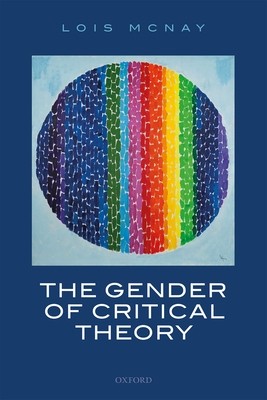
- We will send in 10–14 business days.
- Author: Lois McNay
- Publisher: Oxford University Press, USA
- ISBN-10: 0198857756
- ISBN-13: 9780198857754
- Format: 15.9 x 23.8 x 1.6 cm, softcover
- Language: English
- SAVE -10% with code: EXTRA
Reviews
Description
Frankfurt School Critical Theory describes itself as an unmasking critique of power. However, it has surprisingly little to say about major structural oppressions, including gender. A distinctive feature of critique is that, in diagnosing what is wrong with the world, it ought to be guided by the experiences of oppressed groups. Yet, in practice, it tends to pay little heed to these experiences. The Gender of Critical Theory shows how these oversights and tensions stem from the preoccupation with normative foundations that has dominated Frankfurt School theory since Habermas and has given rise to a mode of paradigm-led inquiry that undermines an effective critique of oppression. The assumption of paradigm-led inquiry that too strong a focus on lived experience has parochializing effects on theory stands in tension with its other tenet that emancipatory critique ought to be primarily concerned with the situation of oppressed groups. To alleviate this tension, this book offers a
reconfigured account of context-transcendence as the critical insight afforded not by a monist interpretative paradigm but by reasoning dialogically across experiential and theoretical perspectives. By bringing feminist work on gender to bear on Frankfurt School critical theory, it argues that, far from stymying emancipatory critique, attentiveness to the experiences of oppressed groups is one of its enabling conditions. Lived experience can reveal dimensions to oppression that are not necessarily visible from the external vantage point of the theorist. The ways in which vulnerable groups respond to their circumstances may also make an invaluable contribution to the development of models of transformative social practice. Combining feminist ideas with inherent but underutilised resources in the Frankfurt School tradition, this book proposes the idea of critique as theorising from experience.
EXTRA 10 % discount with code: EXTRA
The promotion ends in 20d.22:56:40
The discount code is valid when purchasing from 10 €. Discounts do not stack.
- Author: Lois McNay
- Publisher: Oxford University Press, USA
- ISBN-10: 0198857756
- ISBN-13: 9780198857754
- Format: 15.9 x 23.8 x 1.6 cm, softcover
- Language: English English
Frankfurt School Critical Theory describes itself as an unmasking critique of power. However, it has surprisingly little to say about major structural oppressions, including gender. A distinctive feature of critique is that, in diagnosing what is wrong with the world, it ought to be guided by the experiences of oppressed groups. Yet, in practice, it tends to pay little heed to these experiences. The Gender of Critical Theory shows how these oversights and tensions stem from the preoccupation with normative foundations that has dominated Frankfurt School theory since Habermas and has given rise to a mode of paradigm-led inquiry that undermines an effective critique of oppression. The assumption of paradigm-led inquiry that too strong a focus on lived experience has parochializing effects on theory stands in tension with its other tenet that emancipatory critique ought to be primarily concerned with the situation of oppressed groups. To alleviate this tension, this book offers a
reconfigured account of context-transcendence as the critical insight afforded not by a monist interpretative paradigm but by reasoning dialogically across experiential and theoretical perspectives. By bringing feminist work on gender to bear on Frankfurt School critical theory, it argues that, far from stymying emancipatory critique, attentiveness to the experiences of oppressed groups is one of its enabling conditions. Lived experience can reveal dimensions to oppression that are not necessarily visible from the external vantage point of the theorist. The ways in which vulnerable groups respond to their circumstances may also make an invaluable contribution to the development of models of transformative social practice. Combining feminist ideas with inherent but underutilised resources in the Frankfurt School tradition, this book proposes the idea of critique as theorising from experience.


Reviews